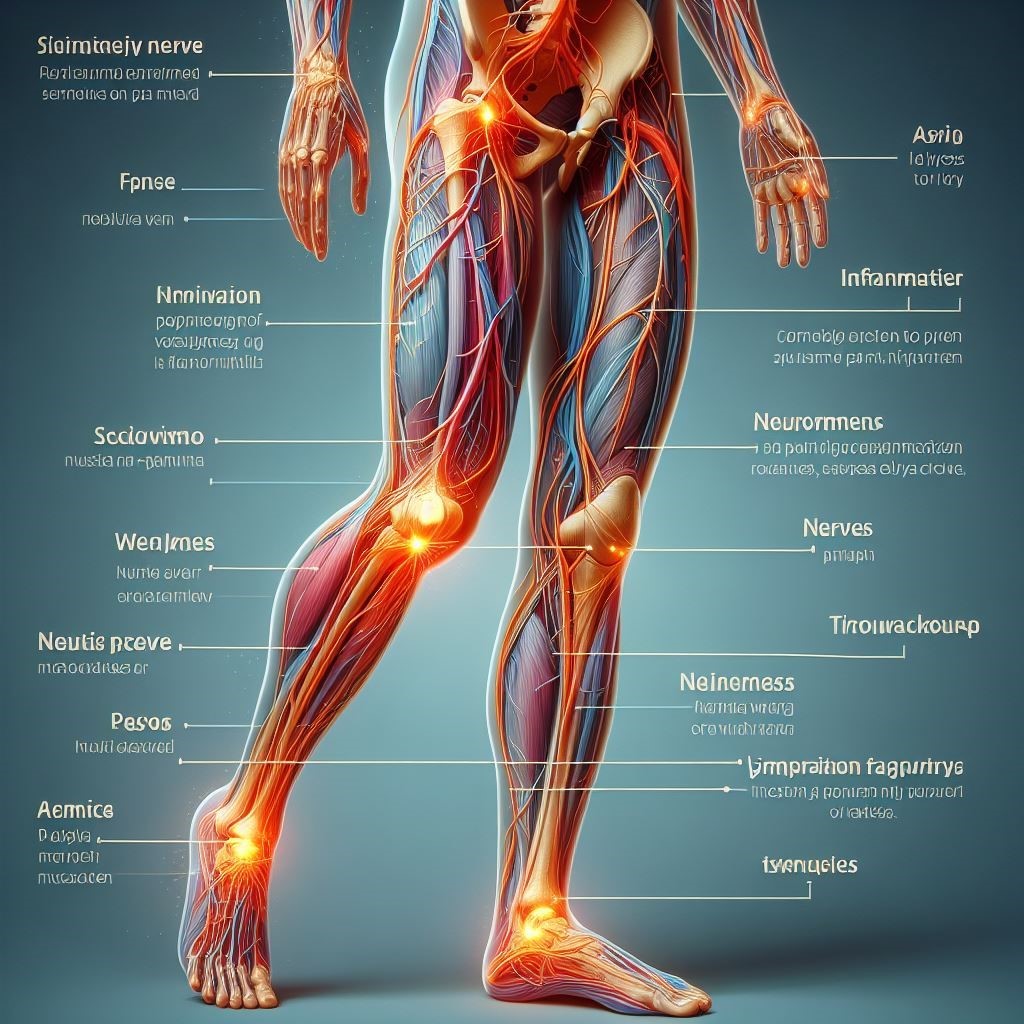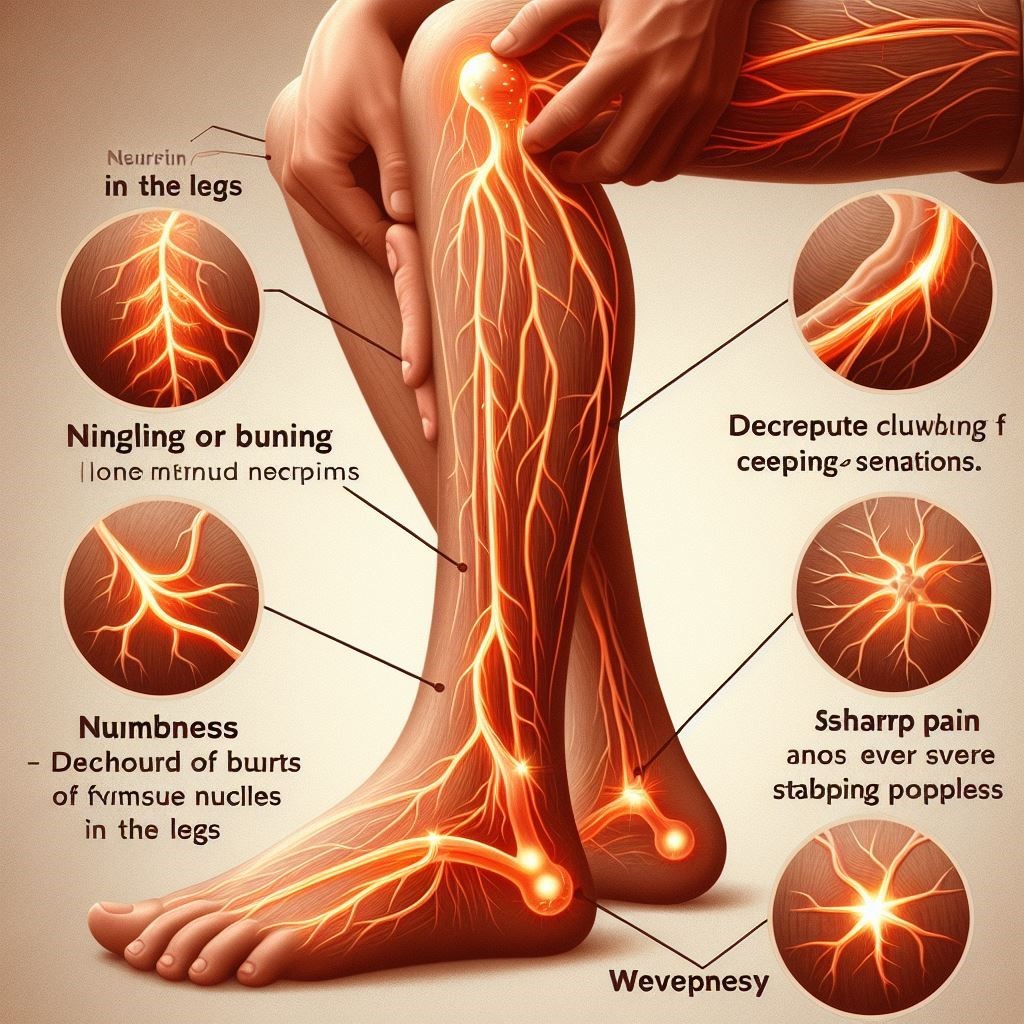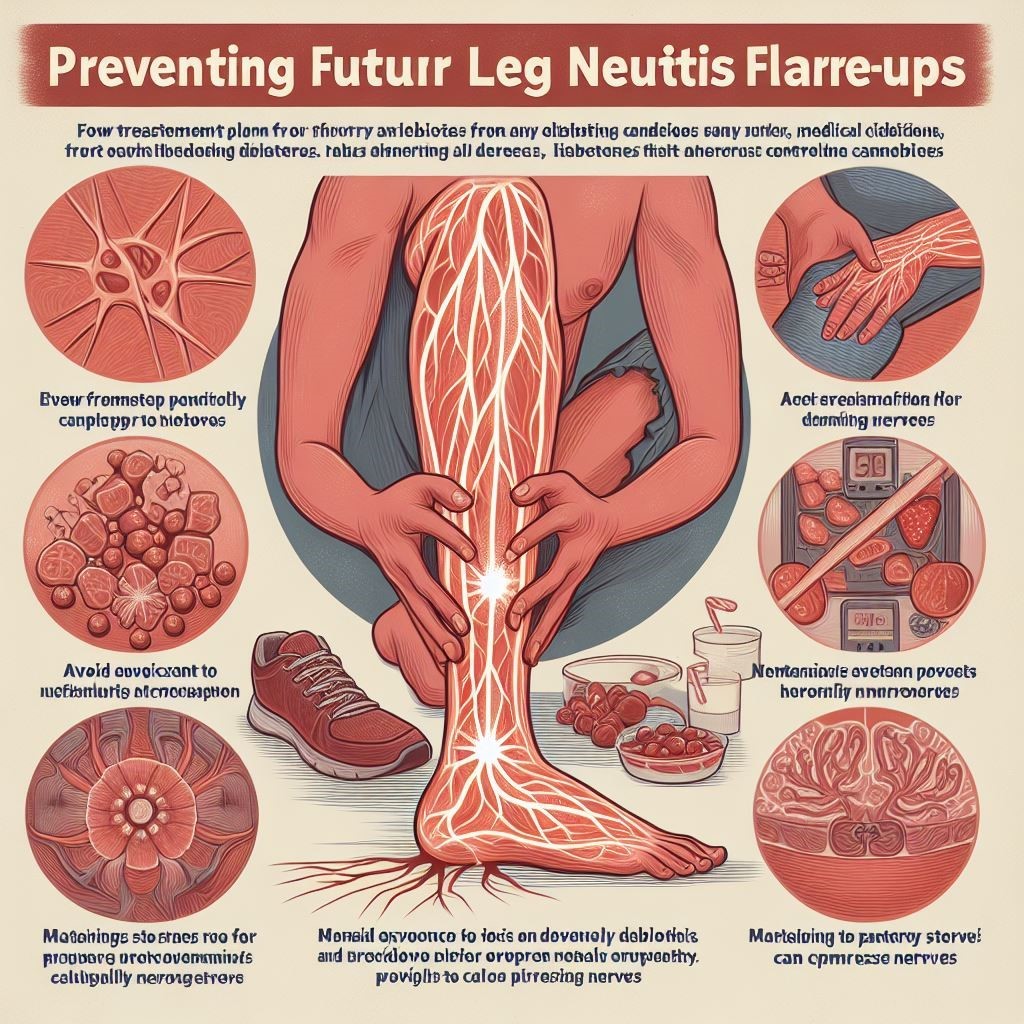Explore the comprehensive guide to neuritis leg symptoms – from causes to treatment. Uncover insights for a proactive approach. Neuritis Leg Symptoms Decoded.
Introduction
Are you experiencing burning, tingling, or numbness in your legs? These could be neuritis leg symptoms caused by inflammation of the nerves running down your lower limbs.
While neuritis leg symptoms stem from many conditions, some common causes are autoimmune diseases, infections, injury, vitamin deficiencies, and diabetes. Getting the right diagnosis and treatment can help minimize the discomfort.
This guide covers everything you need to know about the causes, symptoms, diagnosis, and treatments for neuritis affecting the leg nerves.
What is Neuritis?
Neuritis is inflammation of the nerves. It happens when the nerves get irritated or damaged.
Neuritis leg symptoms occur when the specific nerves in your thighs, calves, or feet get inflamed. This leads to pain, numbness, and weakness down your legs.
Neuritis is often caused by damage to the myelin sheath – the protective coating around nerve fibers. When the myelin sheath gets harmed, it exposes the nerve and leads to inflammation.
What Causes Neuritis Leg Symptoms?

Some common causes of nerve inflammation leading to neuritis leg symptoms include:
- Autoimmune diseases – Conditions like multiple sclerosis can trigger your immune system to attack the nerve fibers.
- Infections – Bacterial or viral illnesses like shingles can cause neuritis.
- Injuries – Trauma from fractures, disc issues, or tissue compression can irritate the nerves.
- Toxins – Environmental toxins like mercury or arsenic are linked to neuritis.
- Vitamin deficiencies – Not getting enough vitamins B1, B6, B12, or E may damage the nerves.
- Diabetes – Having chronically high blood sugar can lead to diabetic neuropathy and neuritis.
- Alcoholism – Heavy alcohol use is tied to nerve damage and inflammation.
- Cancer – Tumor growth near nerves or cancer treatment side effects.
Getting properly diagnosed is key to finding any underlying cause of neuritis. Treatment can then target the specific cause.
What are the Symptoms of Neuritis in the Legs?

Common neuritis leg symptoms include:
- Tingling or burning – Many describe crawling, prickling, or creeping sensations.
- Numbness – Decreased or total loss of feeling in the legs.
- Sharp pain – Brief bursts of severe stabbing pain along the nerve.
- Weakness – Nerves cannot stimulate leg muscles, leading to weakness properly.
- Difficulty moving – Weakness and pain make it hard to move the leg.
- Sensitivity – Even light touch causes discomfort.
- Lost reflexes – Reduced or absent reflexes like the knee jerk.
- Muscle wasting – Loss of muscle from poor nerve stimulation.
Symptoms often focus on the area where the inflamed nerve is located. They may come and go.
How is Neuritis Diagnosed?
To treat neuritis leg symptoms, finding the underlying cause is key. Doctors may:
- Take your medical history and ask about medications, health conditions, and symptoms.
- Do a physical exam checking reflexes, muscle strength, range of motion and nerve sensitivity.
- Run blood tests looking for signs of autoimmune disease, diabetes, deficiencies, or infections.
- Perform a nerve conduction study to see how fast electrical signals move through the nerves.
- Do an electromyography to record muscle electrical activity.
- Take an MRI to get images of the nerve roots and surrounding areas.
- Do a nerve biopsy, removing a small sample of the nerve to examine.
These tests provide clues to what’s causing the neuritis, like autoimmune disease, diabetic neuropathy, physical nerve compression, or nutritional deficiencies.
How is Neuritis Treated?
The appropriate treatment depends on what’s causing the neuritis leg symptoms:
- Autoimmune diseases – Prescribe immunosuppressants and intravenous immunoglobulin (IVIG) to calm the immune attack on nerves.
- Infections – Use antibiotics for bacterial infections and antivirals for certain viral infections.
- Diabetes – Get blood sugar tightly controlled. Medications can also help manage diabetic neuropathy pain.
- Nutrient deficiencies – Correct deficiencies with diet changes or supplements like vitamin B12, and alpha lipoid acid.
- Nerve pain – Prescription medications like gabapentin or topical creams like capsaicin help alleviate nerve pain.
- Nerve compression – Consider surgery or nerve blocks for severe progressive cases.
- Overall health – Lifestyle changes to diet, exercise, sleep, and stress levels also support healing.
While neuritis can’t always be cured, the right customized treatment approach can greatly minimize discomfort and improve nerve function.
Home Remedies for Neuritis Leg Discomfort
For additional relief alongside medical treatment, try home remedies like:
- Use hot or cold packs on the legs to decrease pain.
- Gently massage your legs to increase blood flow.
- Take Epsom salt baths to reduce swelling.
- Avoid tight clothing around thighs that can further irritate nerves.
- Limit alcohol, which may worsen nerve inflammation.
- Do gentle exercises like walking, swimming, or yoga to ease stiffness.
- Consider acupuncture, which may calm nerve pain.
- Use OTC pain meds like NSAIDs temporarily for severe pain.
- If diabetic, keep blood sugar levels in a healthy range, to prevent neuropathy from worsening.
- Get adequate sleep and manage stress, which helps nerves heal.
Preventing Future Leg Neuritis Flare-Ups

Certain lifestyle measures may help lower the chances of recurrent or worsening neuritis leg symptoms:
- Follow treatment plans for any underlying medical conditions, like controlling diabetes.
- Eat a balanced, nutrient-rich diet to prevent deficiencies that can damage nerves.
- Avoid exposure to toxins that could trigger nerve inflammation.
- Exercise regularly, but avoid overexertion that can compress nerves.
- Maintaining a healthy weight lowers the risk of obesity-related neuropathy.
- Practice stress-reducing activities, as chronic stress affects nerve health.
- Change positions frequently instead of prolonged sitting or standing.
Making healthy lifestyle choices helps safeguard your overall nerve health.
When to see a doctor
See your doctor promptly if you have moderate-to-severe leg pain, numbness, tingling, or weakness lasting more than 2-3 days with no recent injury. Sharp shooting pains, sudden trouble moving the leg, or burning in both legs also warrant medical evaluation. Waiting too long can cause permanent nerve damage.
Conclusion
Inflammation in the leg nerves can greatly affect your mobility and comfort. Getting properly diagnosed and treated is key to managing neuritis leg symptoms. Work closely with your doctor to determine the cause and customize your treatment plan. While dealing with neuritis can be frustrating, there are many effective options to alleviate discomfort so you can get back to enjoying your normal routines.
Key Takeaways
Here are the key things to know about neuritis leg symptoms:
- Caused by inflammation of the nerves in the lower limbs.
- Leads to numbness, tingling, weakness, and shooting pains down the legs.
- Underlying triggers include autoimmune disease, infections, toxins, deficiencies, and diabetes.
- Getting accurately diagnosed is crucial to determining the cause.
- Treatment depends on the cause but can include medications, supplements, and lifestyle changes.
- Home remedies like cold therapy, massage, and stress management also help.
- Seeking prompt medical care is key to preventing permanent nerve damage.
- With the right tailored treatment plan, symptoms can often be significantly improved.
Frequently Asked Questions about Neuritis Leg Symptoms.
What are the symptoms of nerve damage in your leg?
Nerve damage in your leg can cause several symptoms like tingling, numbness, burning, or sharp shooting pains down your leg. You may also feel weakness in your leg muscles or have trouble moving your leg normally. The symptoms depend on which nerve is damaged but often affect one side of the leg. See a doctor if you have pain, numbness, or weakness in a leg for more than a few days to get properly diagnosed and treated.
Can neuritis be cured?
There’s no definitive cure for neuritis, but the symptoms can be managed in most cases with proper treatment. It depends on the cause – an underlying condition like diabetes needs to be controlled, while a nutritional deficiency may be fixed through diet. Medications can treat pain and inflammation of damaged nerves. With appropriate treatment guided by your doctor, many people find their neuritis leg symptoms significantly improve or even go away entirely.
What are the symptoms of neuritis?
The major symptoms of neuritis include pain, numbness, tingling, burning, or weakness along the pathway of the inflamed nerve. For example, if the neuritis is in a nerve running down your leg, you may feel weakness or pain down your thigh, calf, or foot. Moving your leg may become difficult. Other symptoms can include muscle wasting, reduced reflexes, and extreme sensitivity to touch. See a doctor if these sensations last more than a few days to determine the cause.
What are the symptoms of neuralgia in the legs?
Neuralgia in the legs causes sharp, shooting nerve pain down the leg, like electric shocks. It may come and go in sudden bursts and can be triggered by touching the skin. Numbness, tingling, and burning sensations are also common. Neuralgia is often caused by nerve compression or damage from injury, surgery, or a health condition. See your doctor for an evaluation if you have severe leg pain that seems to follow a nerve pathway.



